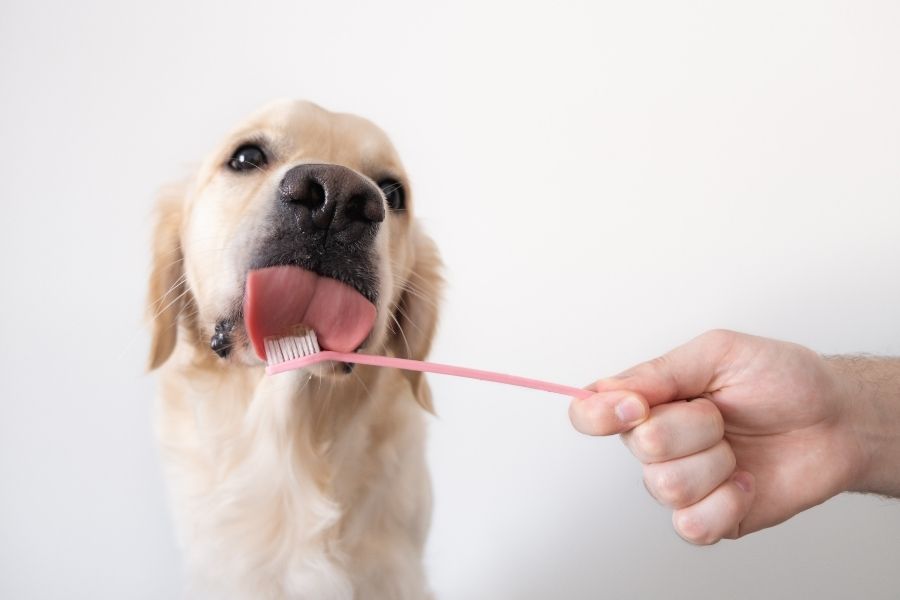February is Pet Dental Health Month, and it aims to raise awareness of the importance of dental care for our pets. Oral care should not be overlooked. A small habit like brushing your pet’s teeth can benefit your pet’s health in more ways than you think. Brushing your pet’s teeth regularly can prevent severe infections and diseases and ultimately help keep your pet feeling clean and healthy. Here are some key things to keep in mind for pet dental health month.
Keeps Breath Smelling Fresh and Clean
A clean mouth can change your whole mood, and it’s no different for our pets. The most apparent benefit of brushing your pet’s teeth regularly is having their breath freshened. Fresh breath is not only pleasant, but it is also a sign that there is no lingering bacteria or tartar that can form a lingering order. Cleaning your pet’s teeth gets rid of that bacteria and tartar build-up and leaves your pet’s breath feeling fresh. A pet with a clean mouth is not only more pleasant to be close to, but it can also help your pet maintain the everyday functions of chewing and playing that their mouth goes through daily.
Prevents Dental Diseases
Dental disease is a severe disease that is entirely preventable. Oral diseases are caused by bacteria lingering in your pet’s mouth from lack of cleaning and tartar build-up. This can infect your pet’s gums and can lead to many complications in their health. Dental diseases affect your pet’s mouth, causing tooth pain, decay, and loss of teeth. Dental diseases can lead to more severe infections throughout their bodies, including their internal organs. Infections that start from the gums and spread through the bloodstream can have critical consequences, including organ failure that can lead to death. All these issues can be prevented from regular brushing and cleaning.

Brushing Frequency
Humans brush their teeth every day, luckily for you, daily brushing for our pets is not needed, but it is beneficial when done regularly. A couple of times a week is more than enough to keep your pet’s teeth clean and their mouth healthy. In the beginning, being diligent and frequent is beneficial to adjust your pet’s habit of getting their teeth brushed. Once they get comfortable with the activity, brushing will become a regular habit they are used to. In addition to keeping frequency in mind, don’t forget to select the best tool. There are human-like toothbrushes and finger slip-on for a closer clean. Be sure to find the right one for your pet’s needs and preferences.
Brushing Alternatives
Sometimes, we don’t have the time to brush our pet’s teeth. Luckily, many alternatives can help us do the job for us. Chewing toys, chewing treats, or bones can be good alternatives to teeth brushing when you don’t have time. Some jerky treats even do an excellent job of cleaning off that plaque and tartar build-up on your pet’s teeth. Not only does this clean their teeth, but it also keeps them occupied with an activity. Remember that these are just alternatives for occasional substitutions of actual teeth brushing. Be sure not to let treats be a constant substitution, leading to other health issues like weight gain.
We want to help spread awareness of dental care for pet dental health month so that all our furry friends live the happiest and healthiest lives. Be sure to do your pet some good and start brushing their teeth regularly. Not only is it a great bonding activity, but it also keeps your pets healthy and happy for years to come. Be sure to check out our various pet services and follow Luv My Sitter on social media!

